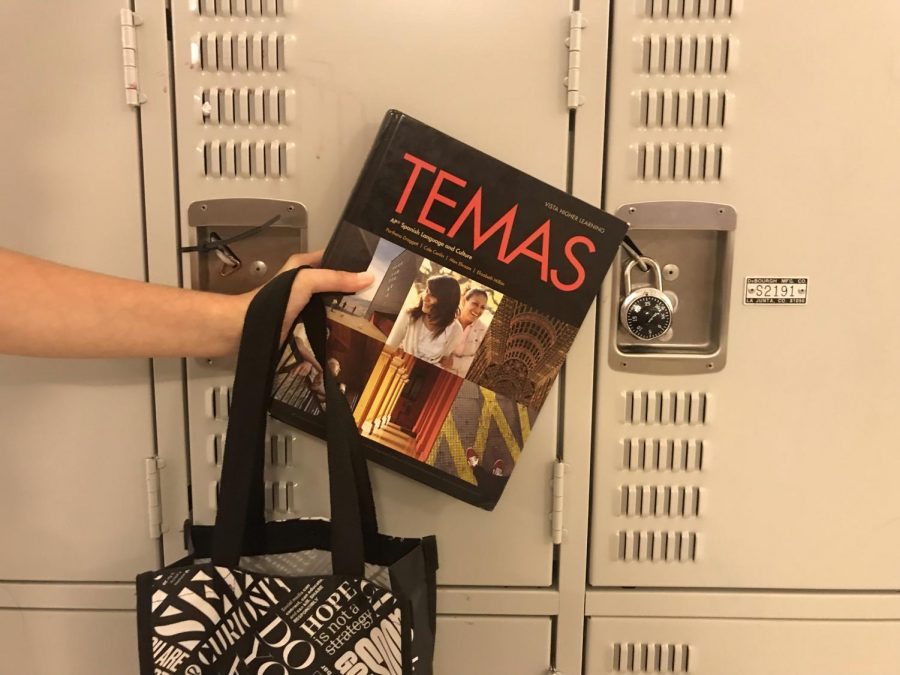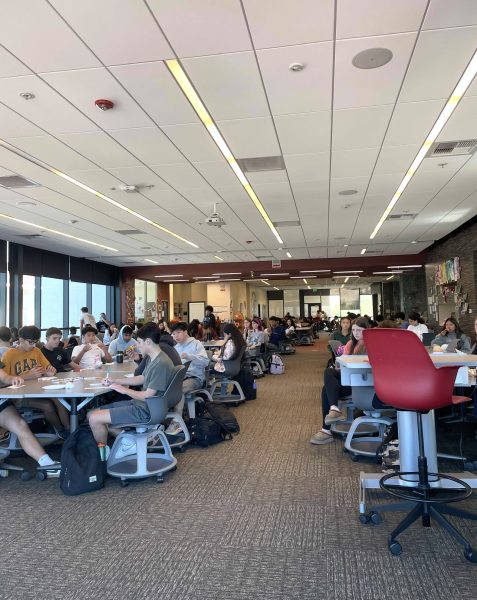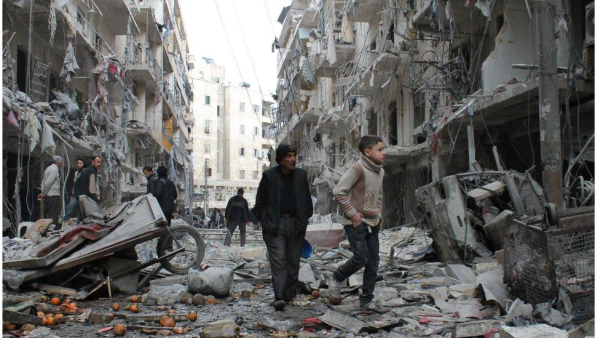Lockers zip tied due to excess trash, students unaware
A zip tied locker is positioned beside a locker with a traditional lock, which is no longer accepted for non-freshmen without notice to the attendance office. Administration deemed that students stored too much trash in the lockers.
Students carry heavy textbooks, packed lunches and sports equipment to and from school every day, but they are now left with nowhere to store them. Well, that still seems to be the narrative nearly two months into the school year.
Toward the end of last school year and at the start of the current school year, Monte Vista custodians zip tied nearly every academic locker — the very place that allows students to relieve weight from their backs and clear classroom space. With the ongoing practice of students storing litter in the lockers, the school felt that this was necessary.
“When our custodians cleaned the campus and check on the lockers, they noticed the excessive trash and ants and informed administration about it,” said attendance secretary Nina Gellerman, who assigns lockers to students.
Although many students and I recognized the cleaner hallways, we first spotted the enclosed lockers with plastic and metal zip ties. Because we were uninformed about the reasoning for this, we presumed that the lockers were no longer available for use and became frustrated with the thought of carrying heavy textbooks and sports equipment.
“I decided to use a locker even though it was locked because it is a lot easier and lighter than carrying textbooks back and forth from home to school,” said senior Anjali Zyla, who takes a course without class copies of the textbook. “It serves as an issue to students because it forces them to carry a lot of books in their backpack, which is super heavy and inefficient.”
Zyla’s reasoning and actions mirror those of many non-freshmen, who were not assigned lockers this year. However, there was a proper procedure set for students who wanted a locker, and this should have been better communicated to students.
“If there is a locker that a student wants to use, they can come see me and I will get a janitor to remove the zip ties,” Gellerman said. “No one has come to ask me for a locker and it has been quiet since the first couple weeks of school.”
The reason that few people have approached attendance to issue a locker is likely because students were not aware of the policy and have used their personal pliers and scissors to remove the zip ties.
“Students are not allowed to cut zip ties, but I’m sure it happens,” Gellerman said. “To be honest, I have no idea what goes on up there nowadays.”
In early September, I requested a lock, but I was denied because locks were “reserved for freshmen” at the time. Initially upset, I braced through the weeks carrying a textbook that could have lived in a locker. Although this incident may have been a mistake on the attendance office’s or my communication end, no one updated me on the reason or appropriate procedure.
“When I first started working here, the amphitheatre lawn was covered in trash and we could barely see the grass,” Gellerman said. “I’ve watched students intentionally leave trash on the ground or store them in lockers when there is a garbage can two feet away. Over the years, our administration has done a better job of enforcing this practice and trash has disappeared from there.”
It is a valid motive to zip tie almost every locker for such purpose, but we need to intentionally promote cleanup by ordering more trash cans or posting signs that restrict students from eating in the hallways. Closing lockers without notice does not clearly communicate this message if we intend for students to learn to be mindful of their litter.
The underlying decision comes from what our school board believes should be the priority; in this case, it seems to be maintaining a cleaner campus, yet hardly anyone knows that.

Claire Chu is a senior in her fourth year of journalism as editor-in-chief for The Stampede. Although...











